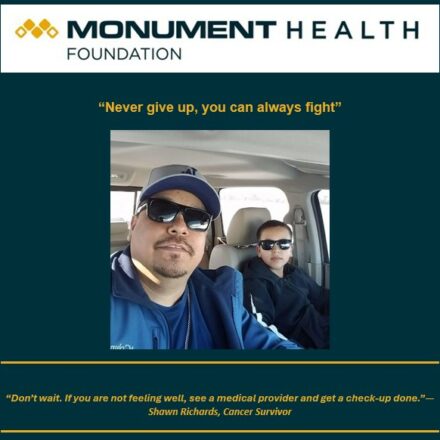
Advances in research are made possible by the willingness of individuals to participate in research studies. Volunteering to participate in a research study means you may receive new treatment options. It’s possible that you won’t directly benefit from the study, but you will help develop medical therapies and treatments for the future.
If you have an interest in participating in clinical trials, talk to your physician or contact Monument Health Clinical Research at 605-755-4326 or email research@monument.health.
Frequently Asked Questions
About Clinical Trials
A research study, also known as a trial or research experiment, is a way for physicians, researchers and scientists to collect and study information about a specific topic or concept.
Research provides opportunities to build the foundation for the future of health care. The knowledge gained from research provides crucial insight into the development of new treatments.
Vaccines that help prevent disease, new cancer treatments and medications that help manage diabetes or blood pressure are examples of widely used medical treatments that are the outcome of clinical research.
Volunteering to be involved in a research study means you might have treatment options not yet available to other patients.
You might not directly benefit from the study, but you will have an important role in developing therapies and treatments for future patients.
If you’re interested in medical research about a specific disease or condition, you should speak with your physician about research studies for which you may qualify.
You may also contact the Monument Health Clinical Research Team at 605-755-4326 or email research@monument.health.
Research studies may involve some degree of risk. Some studies will have a minor risk; for example, filling out a survey with personal questions that may make you feel uncomfortable.
Other studies may have higher risks. For example, taking study drugs with possible side effects. The research team will explain in detail during the informed consent process, the possible risks to you before you decide to participate in the study.
Not every participant will personally benefit from the research study. In some studies, you might be part of a control group that receives a placebo drug or treatment.
However, these studies provide valuable information that will benefit all patients.
Research studies can involve a wide variety of procedures. These might include answering questions, taking trial medicines or using new equipment.
A research study can take a few minutes or several years. All procedures, processes, as well as the duration of the study, will be discussed in detail with the participant during the informed consent process.
Each study is led by a Principal Investigator (PI), a medical professional who oversees the treatment and safety of patients in the research study. The PI may also have a research team.
These members can include research assistants, nurses, data coordinators, statisticians and other skilled individuals. All research team members are educated in the protection of the research participants.
Yes. You leave a research study at any time. The process to withdraw from a research study is outlined in the informed consent form.
An Institutional Review Board (IRB) is a committee of scientific, non-scientific and community members who volunteer to review and approve research studies. The IRB considers the risks and benefits to those who participate in research. The main goal of the IRB is to protect the rights and welfare of participants in research.
Most research studies have specific requirements or criteria for participants. The criteria are not used to reject people but are used to identify the right person for the study and help keep them safe. The criteria also help researchers ensure they will be able to answer the questions they intend to study.
Contact Us
If you have an interest in participating in clinical trials, talk to your physician or contact Monument Health Clinical Research.
Email research@monument.health.


